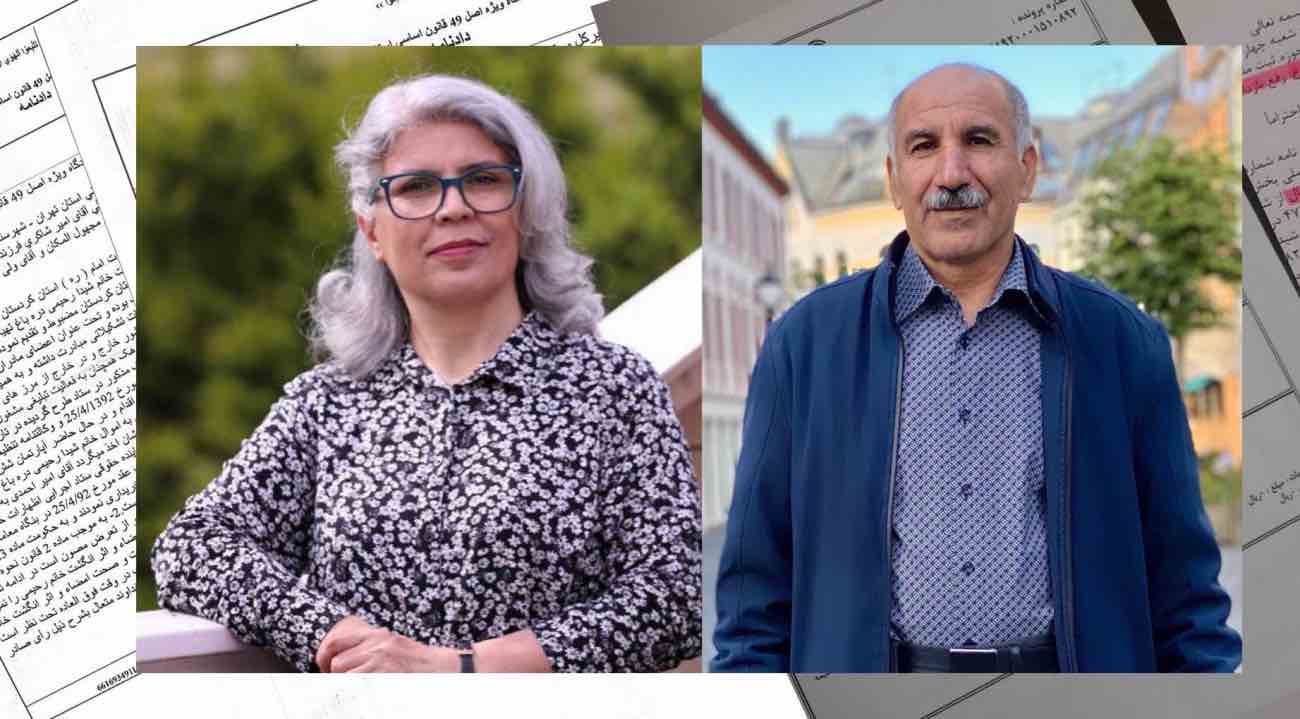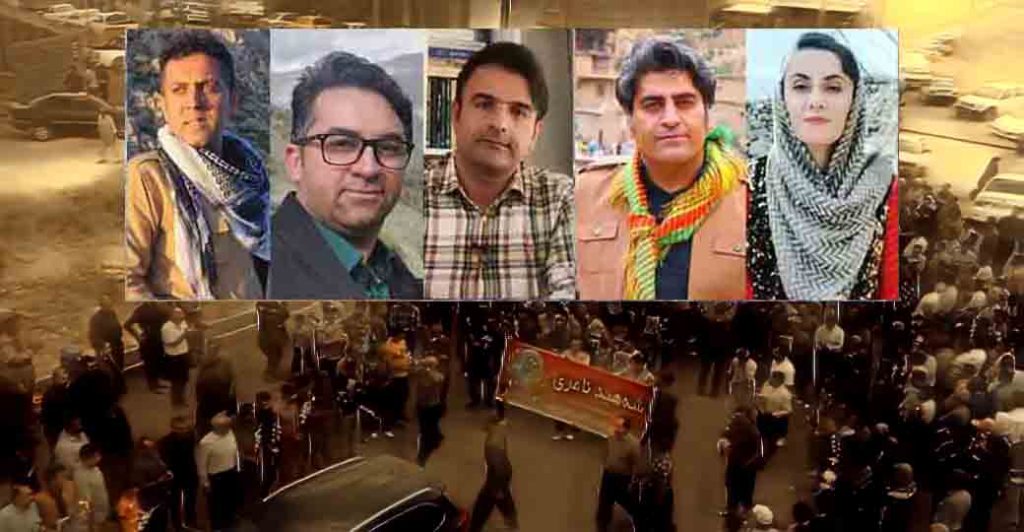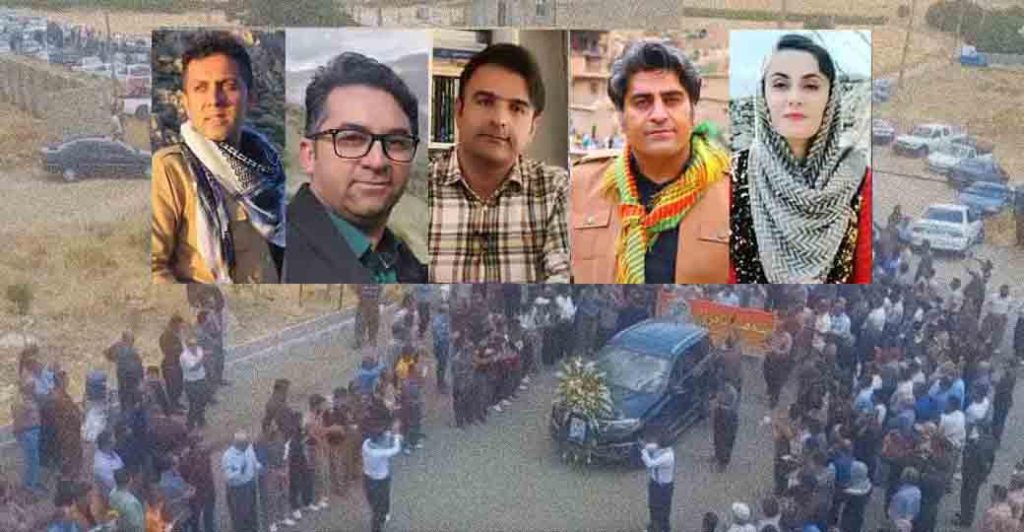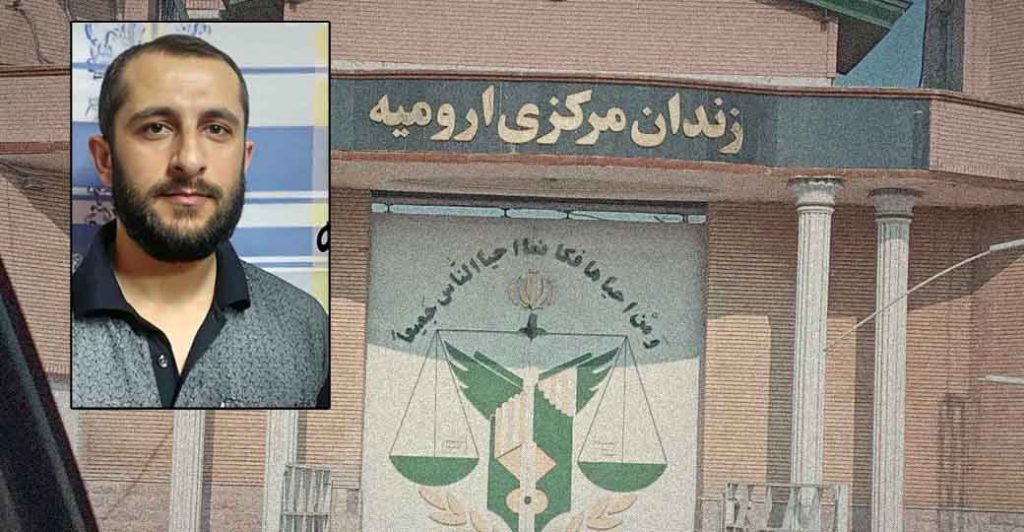Iran’s Execution of Imam Khomeini’s Order (EIKO) has confiscated the residential property of Vali Gholouzi, husband of Kurdish activist Sheyda Rahimi. The confiscation of the house, which is due to be auctioned on 29 February in Sanandaj, Kurdistan province, is allegedly based on Article 49 of the constitution.
EIKO, also known as the Executive Headquarters of Imam’s Directive or simply Setad, is an organisation set up by Iran’s first Supreme Leader, Ruhollah Khomeini, to manage confiscated property and distribute it to charity. However, the organisation, which is under the direct control of the Supreme Leader of Iran, is widely known for illegally confiscating the property of political dissidents.
Article 49, which empowers the government to confiscate property acquired through various illegal means, reads: “The government is obliged to confiscate wealth acquired through usury, confiscation, bribery, embezzlement, theft, gambling, misuse of endowments, misuse of government contracts and transactions, sale of land and property of the deceased, establishment of corrupt places and other illegitimate items and return it to the rightful owner and, if he is not known, entrust it to the public treasury. This decision should be carried out by the government through investigation and legal evidence”.
According to legal documents obtained by the Kurdistan Human Rights Network (KHRN), the confiscation order for Gholouzi’s assets was issued on 29 July 2023, citing Sheyda Rahimi’s violation of the ghaedeh-ye estiman, or Islamic social contract, rule. This was based on Article 11 of the procedure for handling cases under Article 49 of the Constitution: “The property of individuals who are proven to have links with warring groups and who withdraw from the social contract shall be confiscated by court order”.
Withdrawal from the ghaedeh-ye estiman, or Islamic social contract, is a jurisprudential rule by which a person, as a militant infidel, withdraws from the social contract with the Islamic government, and any violation and encroachment on his property and life is considered permissible.
Notably, the property had been formally transferred from Rahimi to her husband through a legitimate contract years ago. However, the Appeals Court declared the contract null and void, citing Article 14 of the Procedure for the Implementation of Article 49. This article states that “any transfer of property under Article 49 for the purpose of evading its provisions shall be null and void upon proof and shall have no effect”.
Rahimi, a Kurdish activist and member of the Kurdish Mothers of Peace, was arrested on 15 May 2016 for taking part in Newroz (also known as Nowruz in Persian) celebrations in the village of Ghasrian in Sanandaj. After 18 days in temporary detention, she was released on bail of 3 billion rials (almost 6,000 USD). Under pressure from the security forces, she was forced to leave the country that summer.
Commenting on the EIKO’s seizure of her family’s assets, Shiva Gholouzi, Rahimi’s daughter, said: ‘Our house was used as collateral for my mother’s temporary release. After she left the country, the Islamic Revolutionary Court in Sanandaj sentenced her to one year in prison for ‘propaganda against the system’. Upon finalisation of the sentence in 2019, my father, who owned the property, received a notice stating that the collateral would be confiscated if my mother did not report to prison. In order to prevent the confiscation of the house in 2019, he paid the entire bail of 300 billion tomans [3 billion rials] into the account of the judiciary in Kurdistan province, and the ownership document was released.”
She continued: “After the bail was paid and the property document was released, the EIKO in Sanandaj contacted my father and informed him of their claim to ownership of our residential property based on my mother’s activities and her departure from the country. This was despite the fact that years before her arrest, conviction and departure, legal and registered procedures had transferred ownership from her to my father”.
The Kurdistan Human Rights Network (KHRN) has learnt that during the legal proceedings, the claim of Mr Amir Shakeri, son of Nejatali and representative of EIKO, was declared baseless, illegal and unlawful by the Special Branch of the Court of Article 49 of the Constitution of the Kurdistan Province. The court ruled in favour of Vali Gholouzi’s ownership of the property on the basis of legal documents, expert opinions and compliance with the civil and constitutional laws of the Islamic Republic.
However, Shiva Gholouzi stated that shortly after this verdict was issued on 30 May 2022, a person identified as Mehdi Saffari, representing EIKO, appealed against the first instance court’s decision and the case was sent to Branch 54 of the Tehran Province Appeals Court, specialised in Article 49 of the Constitution, presided over by Hassan Babaei.
She said: “In this court, through an unlawful and biased process, ignoring the legal documents presented in the first instance court and relying solely on the report of the Ministry of Intelligence in Kurdistan province, the judge considered my mother’s activities in the Kurdish Peace Mothers group in Kurdistan and her solidarity with the families facing prosecution as evidence of her membership in ‘groups opposing the state’. Due to my mother’s departure from the country, the judge considered her to be subject to the rule of ‘withdrawal from social contract’ and declared the legal transfer of the property to my father, Vali Gholouzi, null and void, and ruled in favour of confiscating the residential property”.
Shiva Gholouzi added: “Despite my father’s objection to the legal ownership of the residential property in the court’s reconsideration, on 29 September 2023, while he was abroad visiting me, my sister and my mother after six years of separation, we found out that in his absence and without his or his lawyer’s knowledge, the Sanandaj Registry Office, headed by Hiva Ahmadian and supervised by Jamshid Jahangiri, transferred the ownership document from my father’s name to the Execution of Imam Khomeini’s Order (EIKO). In the coming days, an auction will be held to sell our family home in Sanandaj.”
While there is a well-documented history of the Islamic Republic of Iran’s unlawful confiscation of the assets of political dissidents, in recent years there has been a relative upsurge in court cases invoking the principle of “withdrawal from social contract” to issue confiscation orders against some political dissidents living outside the country.
This is despite the fact that legal experts regard the principle of “withdrawal from social contract” as a somewhat forgotten religious rule dating back to the early days of Islam regarding the residence of “infidels” in the land of “Muslims”. They argue that using this pretext to strip individuals of their citizenship and personal property not only contravenes international human rights laws and principles, but also Iran’s own domestic laws.






